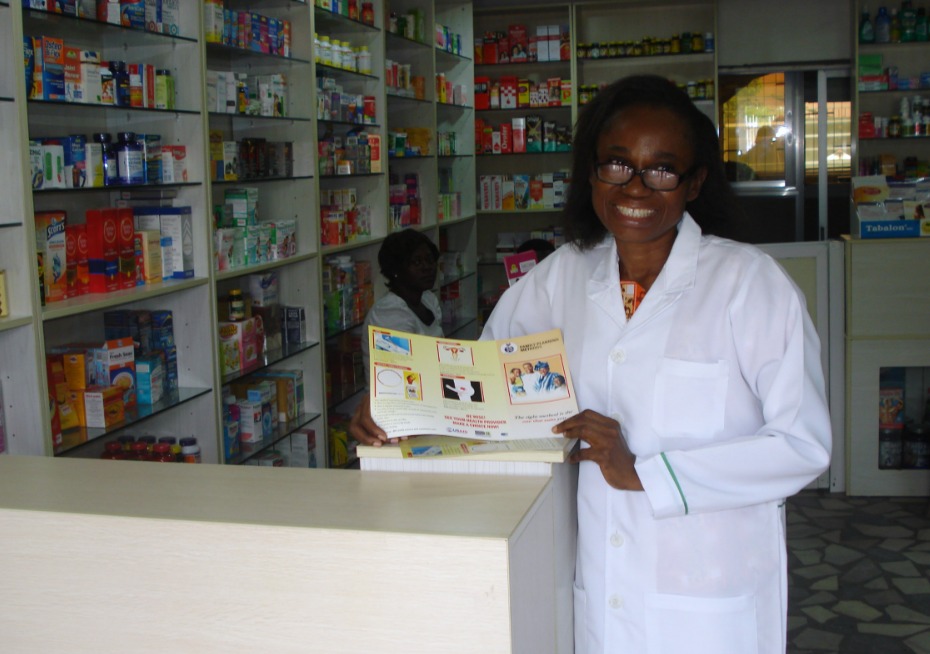New national guidelines increase private provider access to key commodities
On July 24, 2017, the Nigeria National Reproductive Health Working Group and the Ministry of Health launched national guidelines to scale up private provider access to the government’s free family planning commodities. SHOPS Plus developed the guidelines based on a six-month pilot conducted by its predecessor project.

In 2015, the USAID-funded Strengthening Health Outcomes through the Private Sector (SHOPS) Nigeria project secured the approval of the Minister of Health to run a six-month pilot of selected private providers to access the commodities in Lagos and Kaduna states. The pilot, conducted between August 2015 and May 2016, showed that access to free commodities was an incentive for private providers to provide family planning services and report them to the national health information system. This activity increased the number of family planning users, especially those who chose long-acting reversible contraceptives. It also enabled the government to better track all services provided in the country.
Based on these results, the Minister of Health requested guidelines for other states to implement similar public-private partnerships for family planning. Included in the guidelines is a defined procedure for linking the public distribution system to private service delivery points. They also set forth standards providers must attain to access the commodities in terms of client flow, human resources, infrastructure, service types, registration, and other criteria. SHOPS Plus will work with the Ministry of Health to distribute the guidelines nationwide.